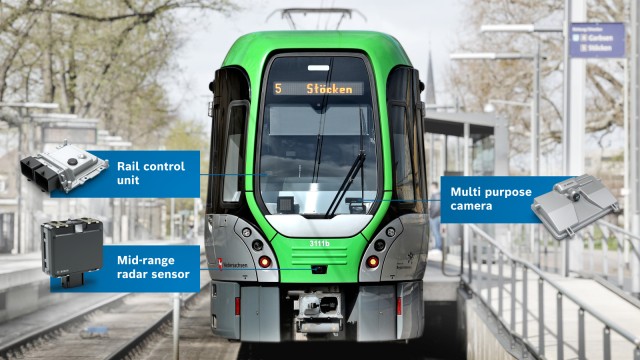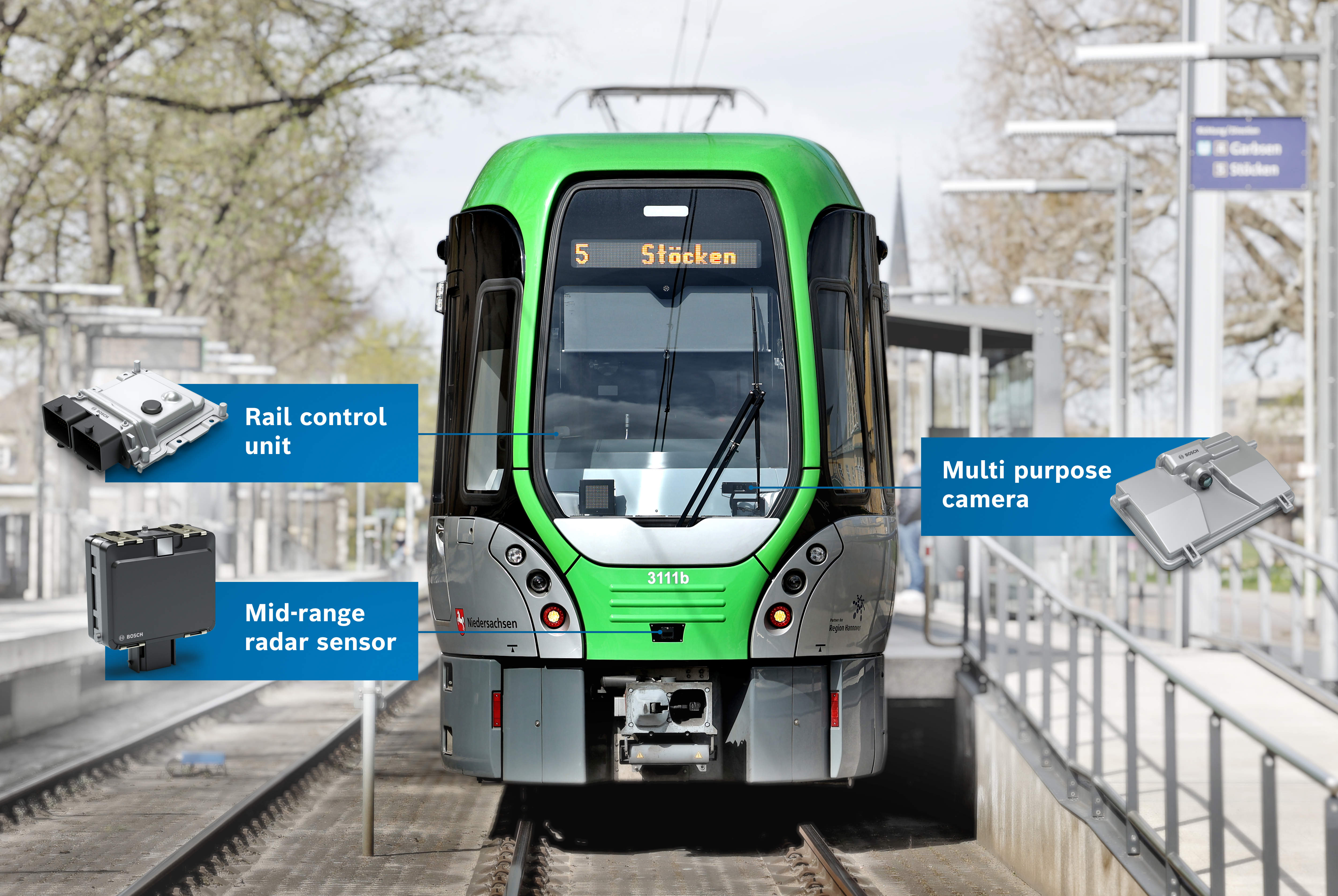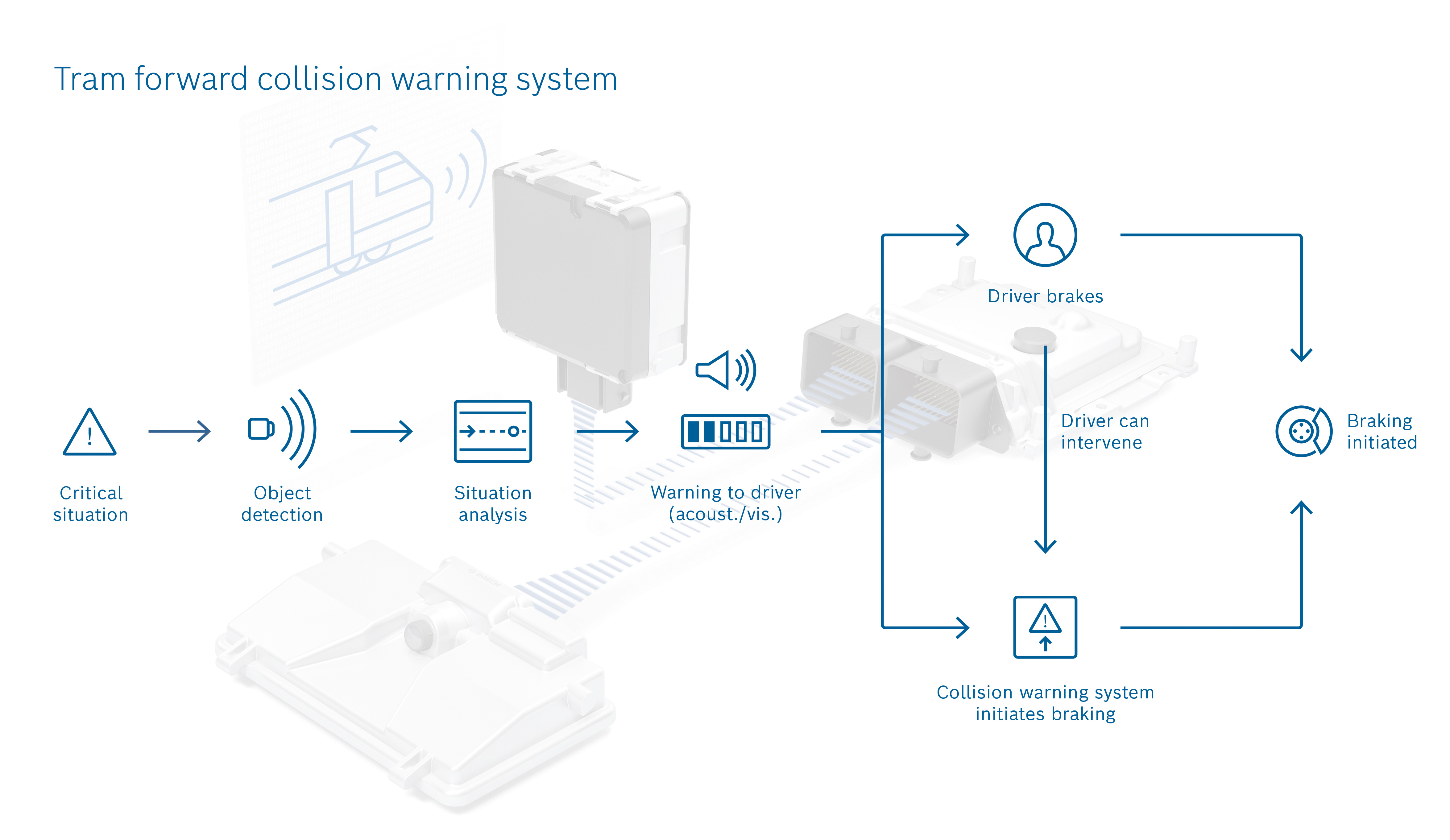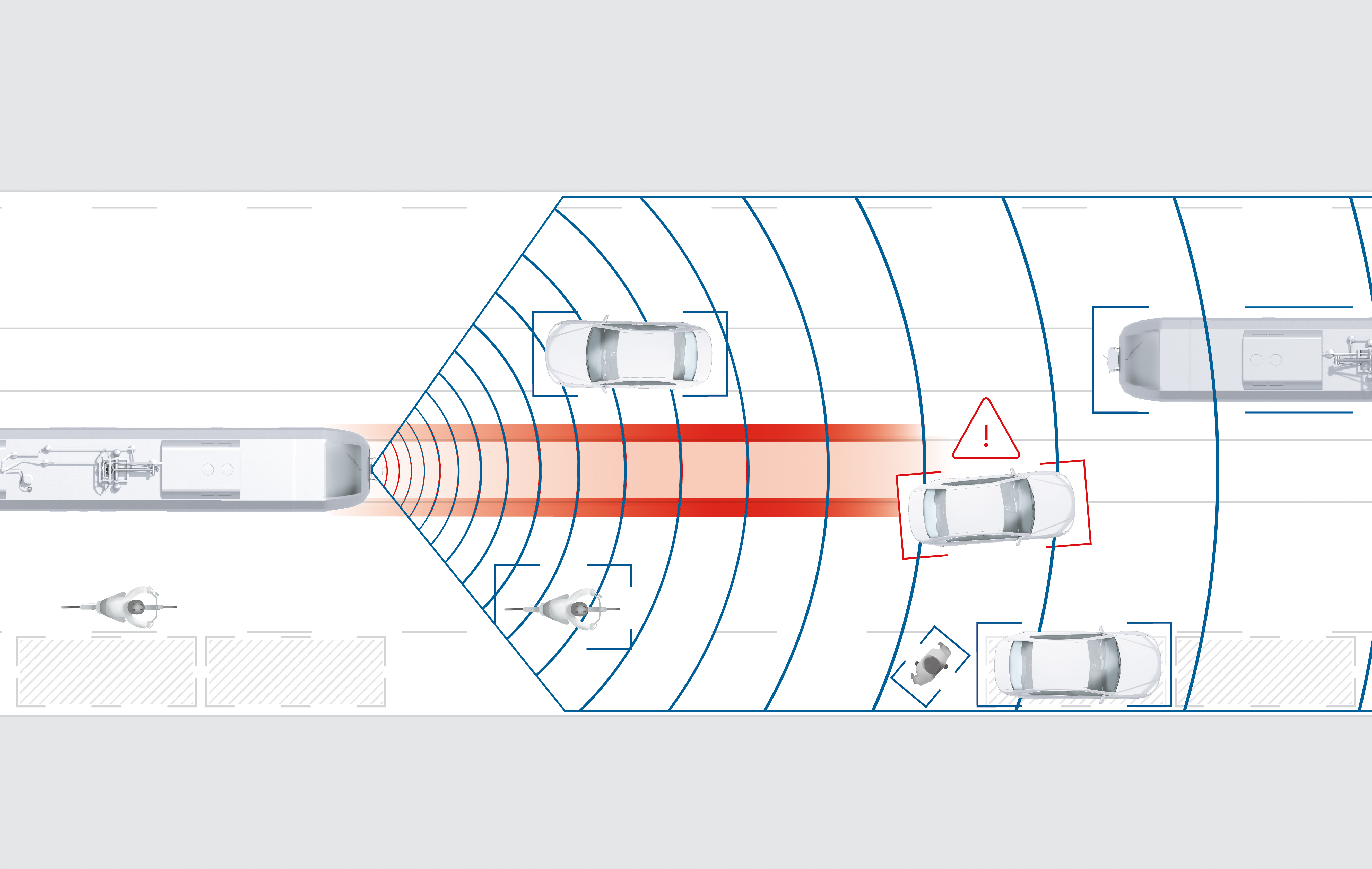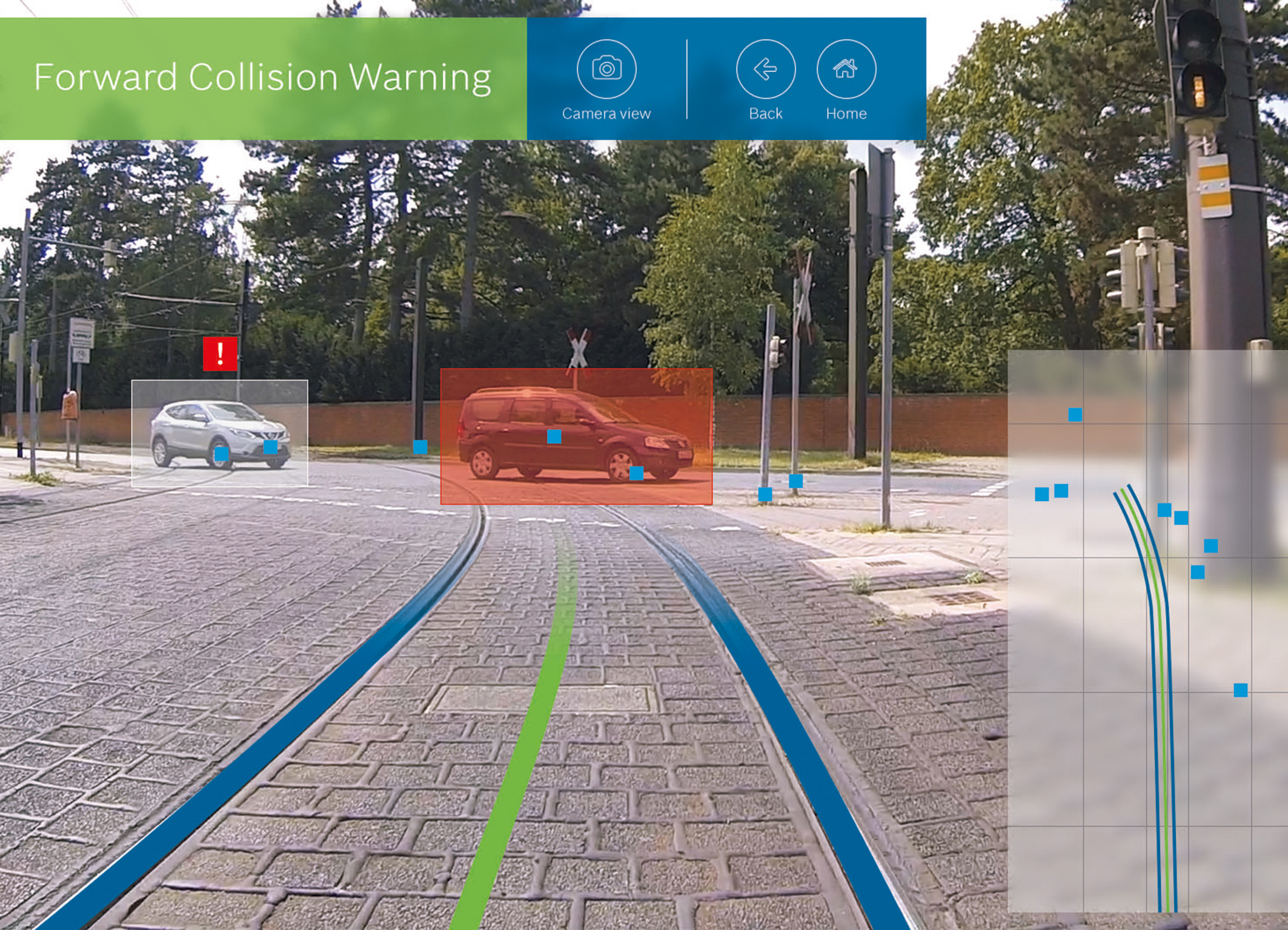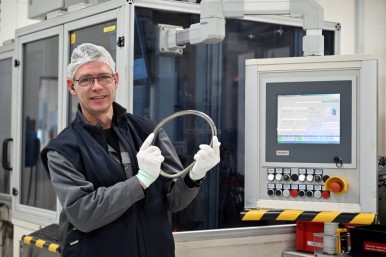Abstatt – Inattentive traffic participants who suddenly walk or drive in front of the tram present a high risk of accidents, especially in the dense, chaotic traffic of today’s city centers. “To minimize the risk of collisions in city rail transportation and to reduce stress for the drivers, we started a development project for driver assistance systems more than ten years ago which are designed especially for trams,” explains Heiko Mangold, head of the rail technology business field at Bosch Engineering. Since 2017, Bosch Engineering’s tram forward collision warning system (TFCW) has been used in passenger operations. Once an object is perceived in the detection area, the system warns the driver visually and/or acoustically of the obstacle and even brakes the tram automatically until it stops if the driver fails to react to the warning or does so too late. After the installation of the system in a German city, for example, the number of tram accidents declined by more than 40%, although the number of trams in operation increased. Currently, around 1.200 TFCW-systems are installed in trams in Europe, Australia, and North America.
Mobility is the largest Bosch Group business sector. In 2023, its sales came to 56.2 billion euros, or just under 60 percent of total Group sales. This makes the Bosch Group one of the leading mobility suppliers. Bosch Mobility pursues a vision of mobility that is safe, sustainable, and exciting. For its customers, the outcome is integrated mobility solutions. The business sector’s main areas of activity are electrification, software and services, semiconductors and sensors, vehicle computers, advanced driver assistance systems, systems for vehicle dynamics control, repair-shop concepts, as well as technology and services for the automotive aftermarket. Bosch is synonymous with important automotive innovations, such as electronic engine management, the ESP anti-skid system, and common-rail diesel technology.
About Bosch Engineering GmbH
Bosch Engineering GmbH is a wholly owned subsidiary of Robert Bosch GmbH and is head-quartered in Abstatt, Germany. As a systems development partner to the automotive industry since 1999, the company with its more than 3,000 associates offers development services for powertrains, safety and convenience systems, and electrical and electronic systems – from the original concept to series production. Specialized in electronics and software, it draws on Bosch’s proven large-scale series production technology to develop tailored solutions for a wide variety of applications in passenger cars, commercial vehicles, off-highway and recreational vehicles, and in rail applications, ships, and industry. Bosch Engineering GmbH also coordinates all the Bosch Group’s motorsports activities.
Additional information can be accessed at www.bosch-engineering.com.
The Bosch Group is a leading global supplier of technology and services. It employs roughly 429,000 associates worldwide (as of December 31, 2023). The company generated sales of 91.6 billion euros in 2023. Its operations are divided into four business sectors: Mobility, Industrial Technology, Consumer Goods, and Energy and Building Technology. With its business activities, the company aims to use technology to help shape universal trends such as automation, electrification, digitalization, connectivity, and an orientation to sustainability. In this context, Bosch’s broad diversification across regions and industries strengthens its innovativeness and robustness. Bosch uses its proven expertise in sensor technology, software, and services to offer customers cross-domain solutions from a single source. It also applies its expertise in connectivity and artificial intelligence in order to develop and manufacture user-friendly, sustainable products. With technology that is “Invented for life,” Bosch wants to help improve quality of life and conserve natural resources. The Bosch Group comprises Robert Bosch GmbH and its roughly 470 subsidiary and regional companies in over 60 countries. Including sales and service partners, Bosch’s global manufacturing, engineering, and sales network covers nearly every country in the world. Bosch’s innovative strength is key to the company’s further development. At 136 locations across the globe, Bosch employs some 90,000 associates in research and development, of which nearly 48,000 are software engineers.
Additional information is available online at www.bosch.com, www.iot.bosch.com, www.bosch-press.com.

